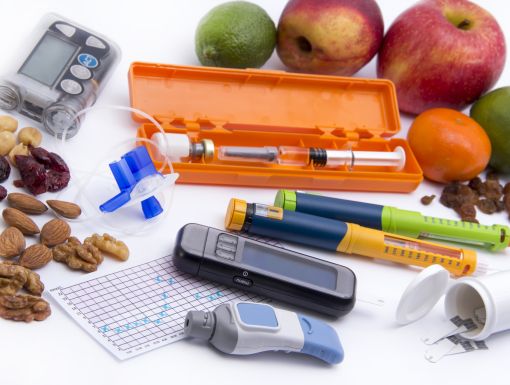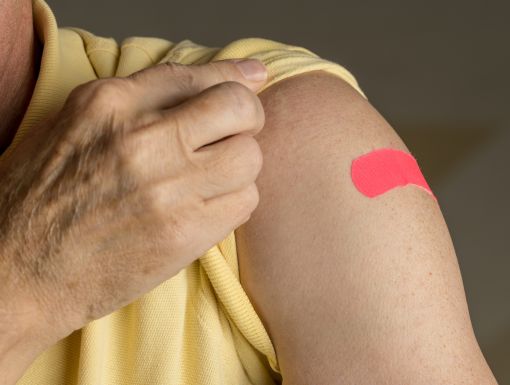
The 2025 Flu Shot and Diabetes: What You Need to Know
The flu vaccine can lessen the severity of illness in the very young and very old, along with those with conditions such as hypertension, diabetes and chronic respiratory illnesses. Since the flu vaccine can decrease the severity of the illness, particularly those who are medically vulnerable, the flu vaccine can lead to decreased hospitalization and mortality.
Getting a flu shot is a personal decision and should be discussed with your doctor or healthcare provider. For additional support, Ochsner Digital Medicine can help you manage your diabetes and stay healthy this flu season. Keep reading to learn more.
The 2025-2026 flu shot
The American Diabetes Association (ADA) recommends all people with diabetes get a flu shot every year. People with diabetes often experience higher blood glucose, or blood sugar, levels than a person without diabetes. High blood glucose makes it harder for your white blood cells to fight infections.
The ADA also stresses the importance of the flu vaccine for those with heart disease and/or smokers.
Will the flu shot give me the flu?
Receiving a flu shot does not 100% guarantee you won’t catch the flu, but it will greatly reduce your risk of contracting the virus. People who live with you or care for you should also consider getting the flu shot to reduce their risk, and yours, of getting sick.
The best time to get the shot begins in September, and it takes about two weeks for the vaccine to become effective.
The flu shot does not give you the virus. Common side effects from the shot include soreness and redness at the injection site as well as low-grade fever, headache and muscle aches.
Managing diabetes involves attention and resilience. By getting vaccinated, those with diabetes can take a powerful step toward safeguarding their health and well-being, demonstrating their commitment to leading healthier lives.
Keep your immune system strong
Diabetes is a chronic disease that can compromise the immune system (your body’s defense against infections). The flu shot helps your immune system protect you from the influenza virus. If you already have severe cold or flu-like symptoms, it is best to wait until you have recovered before getting the flu shot.
Check your glucose levels
If you have symptoms of flu — such as fever, chills, body aches, cough, sore throat, and sometimes even nausea and vomiting — follow your diabetes sick-day instructions provided by your healthcare provider. General instructions may include:
- drink plenty of non-carbohydrate fluids
- choose diabetes-friendly cold and flu medicine
- take prescription medications as prescribed
- check your blood sugar more frequently
Call your healthcare provider if your blood sugar remains consistently high or low, or if you have frequent diarrhea or vomiting.
Practice good hand hygiene
Even after you get the flu shot, it is still important to follow good hand hygiene to protect yourself from illness. Here’s how:
- Wash your hands with soap and warm water before eating, after using the restroom, and after blowing your nose, coughing or sneezing.
- Use hand sanitizer or wash your hands after you come in contact with people who have cold-like symptoms.
- Avoid touching your eyes, nose, and mouth, as germs spread easily through these routes.
Flu shot questions?
If you have severe egg allergy or have a history of Guillain-Barré syndrome (a rare condition in which your immune system attacks the nerves), talk with your doctor before getting vaccinated.
According to the Centers for Disease Control and Prevention (CDC), most people with egg allergies can safely get the flu shot. If your reaction to eggs is mild, such as hives, you can receive any licensed flu vaccine appropriate for your age and health. People who have more severe allergic symptoms, like difficulty breathing, should have the shot administered in a medical setting under supervision.
Ochsner conveniently offers an egg-free flu vaccine for those with egg allergies.
If you are on immunosuppressant medication, it is recommended to get the vaccine, though the effectiveness of the vaccine can vary from patient to patient.
Stay informed and take proactive steps to protect your health this flu season by following these guidelines. If you have been diagnosed with Type 2 diabetes, the Ochsner Digital Medicine program can help you control your condition and prevent further complications of diabetes.
Enroll in Digital Medicine, your partner in Type 2 diabetes care
As a member of the program, you’ll have the support of a panel of professional health coaches and a licensed clinician, who will encourage you to stay up to date with annual shots and screenings, manage your medications and provide lifestyle support. Easy digital tools allow you to take care of yourself at home—limiting extra trips to the clinic.
The Digital Medicine program is also available for the treatment for high blood pressure and weight. The program meets the member where they are to empower them to lead their own health journey.
Don’t wait! Protect your health this flu season. You can enroll in the Ochsner Digital Medicine program here.



